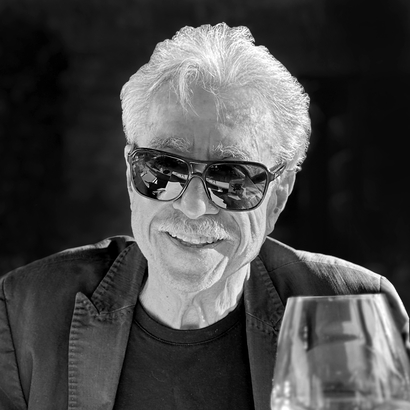Restaurateur Matt Abramcyk’s first thought when he and his partners decided to buy the Manhattan building was not of its ill-fated past. Who could blame them had they hesitated, which they did not.
The building at 314 West 11th Street had been home to the Spotted Pig, also known as the scene of the crime. Once among the most admired and successful restaurants in Manhattan, it earned accolades for both the seasonal British food (by chef April Bloomfield) and ambience (from restaurateur Ken Friedman). But then, in 2017, it was undone by rumors of sexual misconduct including harassment, retaliation, and gender discrimination. The accusations exploded like a grease fire in a kitchen, and by 2020, the Spotted Pig was out of business.

The Spotted Pig’s demise was more than just another restaurant failure; those are commonplace in New York City. It was both a self-inflicted tragedy and a gastronomic disaster. There was no Manhattan restaurant quite like it, none with well-known owners, a Michelin star, long lines outside the door every evening, and Bloomfield in the kitchen, making her Roquefort-topped cheeseburgers and sheep’s-milk-ricotta gnudi. Even she was tainted by the allegations—in her case, failing to step in and condemn the ongoing harassment.
Abramcyk’s first thought was not of past sins but admiration for the venerable building and awareness of its value to the West Village neighborhood. It was abandoned, without a tenant following the downfall of the Spotted Pig, but he was determined to save it. He loved its unusual shape and its location. He calls it “a testament to the city” and adds, “I was in love with it from the first time I was in it.”

Abramcyk is 44 years old, a real-estate veteran with nearly two dozen restaurant investments, largely in Tribeca, in his portfolio. Building on the success of Tiny’s and the Bar Upstairs, Smith & Mills, and A Sunny Day Café, he and his partners reportedly paid $7.5 million for the building. “There are other, better ways to make money,” he says. “This was not an economic calculus.”
There was no Manhattan restaurant quite like it, with celebrity owners, a Michelin star, long lines outside the door every evening, and Bloomfield’s Roquefort-topped cheeseburgers and sheep’s-milk-ricotta gnudi.
The ground floor of the building reborn as the Golden Swan is essentially a gastro pub, as was the Spotted Pig, although Abramcyk says that until recently he had no idea what a gastro pub was supposed to be. Reimagined by building-and-design firm BWArchitects, this particular manifestation consists of a very small, very crowded ground-floor room, filled with tiny round tables. Featuring dishes such as tomato fondue, tagliolini carbonara, and tuna Niçoise, chef Doug Brixton’s promising menu aligns more with classic dining than with pub fare. At the time of my visit, earlier this month, the room was overflowing, and the execution of the dishes was a work in progress.

The décor of the main dining area, located on the second floor, was inspired by the golden light reflecting off the Hudson River, and it practically glows. The lamps, draperies, and banquettes are all in shades of gold, as are the wall tiles in the restroom. The planned menu, not available when I visited, rises to the décor: foie gras mousse, poached halibut, and Colorado lamb are among the choices.
Abramcyk does not have a reputation as a well-known restaurateur, nor has he benefited from constant contact with movie stars, at least no more than the average New Yorker has, passing them on the street. He says his father, a real-estate broker for more than 45 years, was a cousin of Isaac Bashevis Singer’s, the Nobel Prize–winning novelist, but Abramcyk never met the legend.
The price tag the partners paid for the restaurant seems excessive for an ancient and abandoned property, although considering the explosion of Manhattan real-estate prices in recent years, it might be thought of as reasonable. It might also cause the public to believe he is fabulously wealthy, but he denies being in that category.

“What I did was work really hard,” he says. “I wish I were well off. I have no trust fund.... This was a gamble.”
The city has a long connection with the name Golden Swan. There was a much earlier Golden Swan in Manhattan, a notoriously unsavory bar not far from 314 West 11th Street. It was demolished long ago, and the lush grounds that occupy its former space are now known as Golden Swan Garden.
A challenge for Abramcyk will be erasing memories of the Spotted Pig and bringing the name Golden Swan to the forefront. For a man so bright he once dabbled in something called “regression analytics to chart deviations in public-investment products,” it shouldn’t be that difficult.
A former sportswriter for the Philadelphia Evening Bulletin, Alan Richman has won 16 James Beard Foundation Awards for his journalism on food and wine, and a National Magazine Award for feature writing


